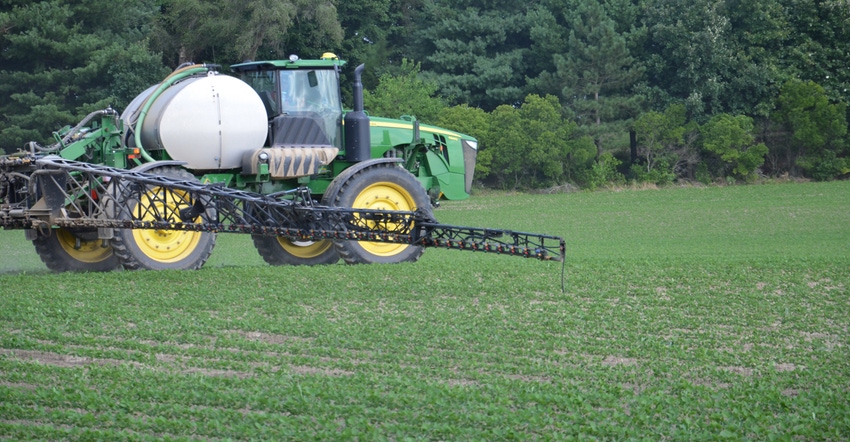
When the U.S. EPA reregistered dicamba soybean herbicides for use on Xtend soybeans in 2018, labels were effective for two years. The two-year registration expires in December.
Bryan Young, a Purdue University weed control specialist and researcher, says EPA is gathering information about dicamba now. He is part of a group of weed scientists who shared their views with EPA recently.
Here, Young shares his insights about the situation with Farm Progress:
What options will EPA have regarding dicamba soybean herbicides? One option would be doing nothing and allowing registrations to expire. Other options include extending registration under the current label or extending registration with further label restrictions.
How does EPA make decisions? It weighs risks versus rewards. Risks include drift issues. Rewards include providing farmers with a valuable tool to control tough weeds resistant to glyphosate and some other chemistries. If drift problems continue to escalate in 2020, or if growers achieve less weed control from dicamba due to evolution of resistant weeds, the risk-benefit calculation changes.
What might happen? I expect EPA to likely continue registration of these herbicides but include more restrictions. Dicamba drift complaints to state agencies in several Midwestern and Southern states, including Illinois and Indiana, have continued to increase over the past three years. It’s also true that these products kill weeds when applied properly.
What restrictions might you expect? Several states have imposed restrictions through the 24(c) exemption process. Most set a cutoff date for dicamba applications. The cutoff date for Indiana in 2020 is June 20. In Illinois, there is a cutoff date, plus you can’t apply above 85 degrees F. Since planting dates vary across the country, I expect EPA might restrict temperature instead of imposing a federal cutoff date.
It’s possible EPA may issue this as a nationwide requirement, and no longer recognize 24(c) state exemptions. Exemptions were set up so states could be less restrictive on herbicide applications when necessary, but now it’s being used to be more restrictive.
Are soybean dicamba herbicides as effective as they once were? Bayer reported an increase in number of complaints about ineffective weed control in 2019. There could be several explanations, including tall weeds and spray coverage issues. We saw good control of weeds with 0.25 pound per acre of dicamba in our research 10 years ago. Now we’re using 0.5 pound of dicamba and getting weed escapes.
In addition, dicamba is commonly mixed with glyphosate, but AMS can’t be used as an adjuvant. Glyphosate needs AMS to help it control grasses and key weeds like velvetleaf.
Could EPA no longer allow glyphosate to be mixed with dicamba beginning in 2021? It’s possible, but I don’t believe that would be prudent. It’s more convenient for farmers and applicators to make one trip on the same day. Also, EPA doesn’t usually include things which are hard to enforce.
Are weeds developing resistance to dicamba soybean herbicides? There is no known resistance of any weeds to dicamba soybean herbicides in Indiana at this time. Some weeds seem harder to control than in the past. We’re testing some weed populations in our greenhouses. However, declaring a weed resistant to a herbicide is a detailed process, which is outlined by a protocol which all weed scientists follow.
Read more about:
DicambaAbout the Author(s)
You May Also Like




